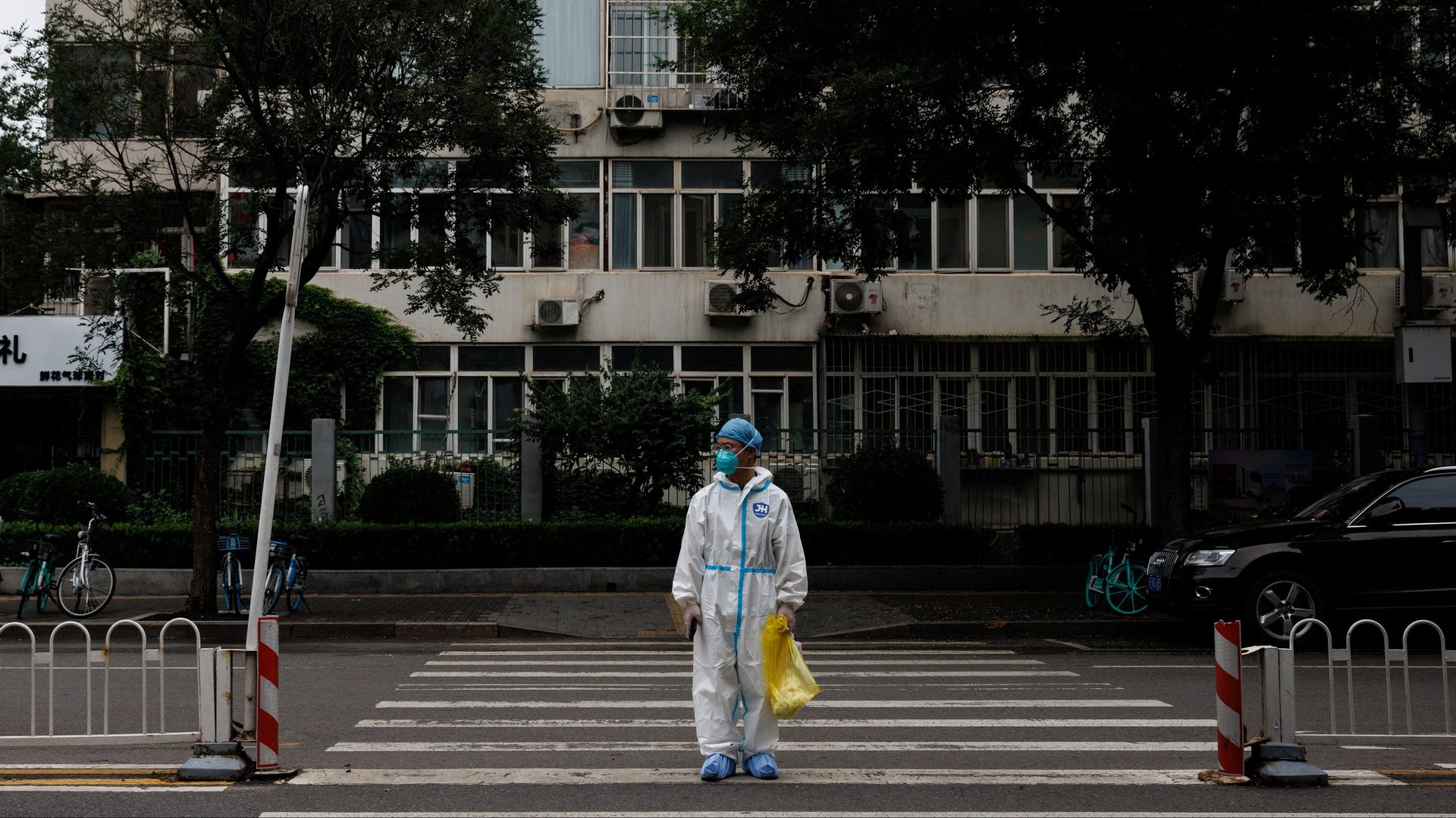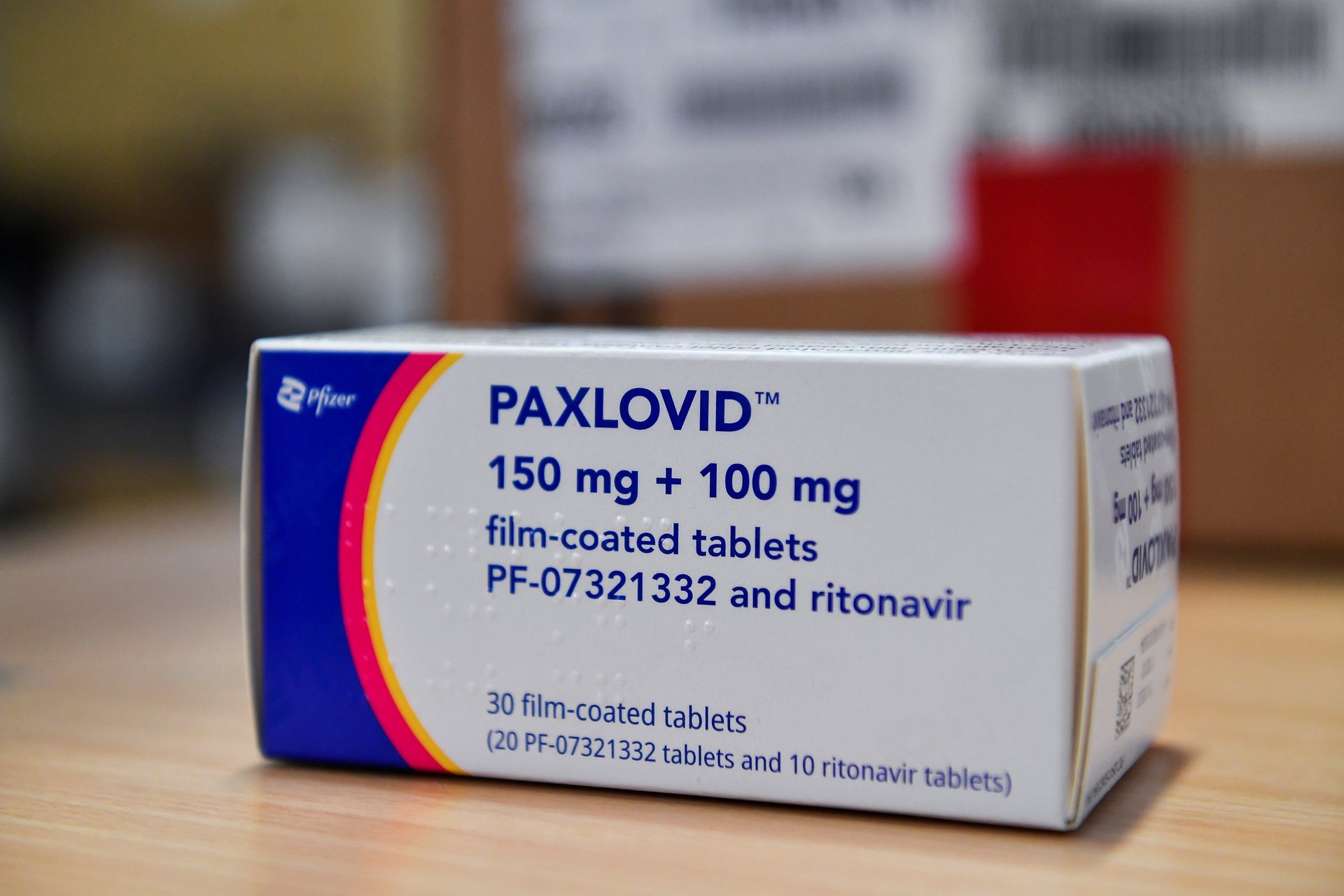How China beat US pharma giant Gilead in the race to create a covid antiviral pill
Covid is not going away. Covid vaccines are not foolproof. But endless waves of mass outbreaks, deaths, and an epidemic of long covid is no solution, either. Short of of unsustainable zero-covid policies, what’s to be done?


Covid is not going away. Covid vaccines are not foolproof. But endless waves of mass outbreaks, deaths, and an epidemic of long covid is no solution, either. Short of of unsustainable zero-covid policies, what’s to be done?
Effective covid antiviral pills can speed up patient recovery and add to the arsenal of tools that help to prevent severe illness and death.
There are already two oral covid antiviral treatments granted emergency use authorization by the US Food and Drug Administration: Pfizer’s Paxlovid and Merck’s molnupiravir. Another covid antiviral is Gilead’s remdesivir, also authorized for emergency use.
But each has its drawbacks: Paxlovid can cause significant drug interactions for people on certain medications; molnupiravir’s mechanism of action could create new and dangerous virus mutations; and remdesivir must be administered intravenously, hindering accessibility.
Now, China is closing in on the finish line on developing its own covid antiviral pill. And it has what looks to be a promising candidate.
“Will VV116 become the hope of the whole village?”
In late May, Shanghai-headquartered biotech firm Junshi Biosciences announced results from its late-stage Phase 3 trial of VV116, an oral covid antiviral pill. While full data have not yet been released, the company said that trial results showed VV116 to be more effective than Pfizer’s Paxlovid in accelerating covid patients’ recovery.
“The results suggest that it works…what [Junshi] did was very fast and very rapid. It’s quite impressive,” said Michael Lin, a professor of neurobiology and bioengineering at Stanford. However, he noted that this particular trial was not double-blind, and that Junshi has yet to detail the relative reduction in hospitalization for trial participants who received VV116.
Junshi, which developed VV116 together with the Wuhan Institute of Virology and the Chinese Academy of Sciences as well as Suzhou-based Vigonvita Life Sciences, has submitted a preliminary application to China’s National Medical Products Administration, according to company filings (pdf, link in Chinese). That paves the way for a formal application for regulatory approval to bring VV116 to market. Uzbekistan granted emergency use authorization to VV116 late last year.
The approval process could be quick thanks to an accelerated regulatory channel for public health emergencies like covid, said Minhua Chu, vice president of intelligence researcher at Chinese biotech site PharmaDJ. For instance, China’s Sinopharm covid vaccine was approved within eight days in December 2020.
If VV116 proves to be highly effective, and can be manufactured and deployed quickly and at scale in conjunction with higher vaccination rates among China’s elderly, it could help further reduce the infection fatality rate in the country. Top Chinese officials including Xi Jinping have repeatedly said that zero-covid policies are essential for protecting lives.
And even if the full data ultimately show that VV116 is not superior to Pfizer’s Paxlovid as Junshi claims, but rather show “non-inferiority or [that it] is very comparable to Paxlovid efficacy, I also think that’s a win for Junshi,” said Victoria Yan, a US-based chemist who has written extensively about covid antivirals. “And the reason why I think this is because one of the main limitations with Paxlovid is that it has significant drug…interactions.”
Yan added that prodrugs like VV116 and remdesivir, by contrast, seem less likely to have as extensive drug interactions. Prodrugs are an inactive form of a drug that is converted into the chemically active compound once inside the body.
Still, experts say the priority should be to get everyone vaccinated in China.
“Antivirals are very useful, but for viral infections like covid, they typically have to be given very early in the course of the illness to do good, and that’s not always easy,” said Benjamin Cowling, professor and chair of epidemiology at the University of Hong Kong. Having an effective antiviral like VV116 “would not necessarily change [China’s] risk assessments because we already have vaccines which can provide a pathway out of zero-covid.”
China is eyeing VV116 closely and hoping for a win, not least because zero-covid has been disastrous for its economy.
“Will VV116 become the hope of the whole village?” asked a recent article published in the state-run Economic Daily (link in Chinese).
Or as veteran investor and founder of Beijing Nanshan Investment, Zhou Yunnan, put it to the state-run Securities Daily (link in Chinese): “The three prerequisites for the gradual liberalization of China’s anti-epidemic policy are an efficient domestic vaccine, a 100% vaccination rate, and a cost-effective domestic covid drug.”
How China developed VV116
The story of how China came to develop VV116 is one of missed opportunities in the US—specifically the pharmaceutical giant Gilead.
VV116 is a patented modification of GS-441524, an antiviral drug invented and patented by Gilead. In fact, GS-441524 is similar to remdesivir, Gilead’s intravenous covid antiviral treatment; the latter just has an extra phosphate group. Research by Yan and her colleague Florian Muller argue that functionally the phosphate group means remdesivir “favors the liver over the lungs,” which “undermines its utility in the context of a primarily respiratory disease such as Covid-19.” (Cat owners also may know GS-441524 as an effective black-market cure for a fatal cat disease caused by a feline coronavirus.)
Yan was one of the few scientists who argued very early on in the pandemic that GS-441524 could be effective—if not more so than remdesivir—in treating covid.
But Gilead made no moves to take the drug to formal clinical trials. Instead, Gilead went with remdesivir, which it also patented.
Why? Yan reckons it’s partly because Gilead didn’t think GS-441524 would be “a sure-fire, safe financial investment.” Because GS-441524 was patented years before remdesivir, it has fewer remaining years of patent exclusivity.

Gilead, in an earlier statement, said it focused on remdesivir because it is in fact more effective and had already been tested in humans, and hence was faster to deploy. But accessibility is an issue: remdesivir needs to be given via intravenous drip over three days, impeding home use. Meanwhile, Gilead tried but failed (pdf, p.9) to make an inhaled version of remdesivir.
In any case, China did what Gilead would not: it bet on the efficacy of GS-441524. Chinese scientists found a creative way around Gilead’s patent, modifying GS-441524 through a process called deuteration, and filed a patent application for their new prodrug VV116 as early as April 2020. Deuteration does not fundamentally change the therapeutic properties GS-441524, but is different enough to not be covered by Gilead’s patent. Many large drug companies now also claim deuterated versions of new molecules in patent applications. It appears that Gilead neglected to do so with GS-441524.
So now China has what could be highly effective covid antiviral, built on Gilead’s building blocks that the US pharma giant decided not to deploy.
And Gilead is now playing catch-up: it is working on an oral covid tablet dubbed GS-5245. But it’s only in Phase 1 trials, far behind Junshi, with Gilead saying it “may begin” Phase 3 trials later this year.
What’s more, a Gilead spokesperson said that “[o]nce metabolized, GS-5245 works in the same way as remdesivir on the SARS-CoV-2 virus.” That would suggest that GS-5245, as an oral prodrug, is designed to deliver to a body’s cells GS-441524 — a technology that Gilead has long had access to. But Gilead did not announce a Phase 1 trial of GS-5245 until January.
Meanwhile, the US government, through the National Center for Advancing Translational Sciences (NCATS) at the National Institutes of Health, is evaluating GS-441524 as a potential covid treatment. However, no clinical studies are active yet, according to the NCATS open data portal.
From vaccine diplomacy to VV116 diplomacy?
Gilead had a head start with GS-441524 but didn’t capitalize on it. Meanwhile, China spotted an opportunity and pounced on it. It mobilized research resources, orchestrated public-private partnerships, and quickly rolled out clinical trials for VV116 across China—an impressive feat of initiative and coordination.
Having VV116 in its arsenal gives China another advantage: it can potentially offer patients a combo treatment of its homegrown covid pill along with Pfizer’s.

While both VV116 and Paxlovid are antivirals, each target different parts of the covid coronavirus, Sars-CoV-2. Paxlovid blocks the virus’ enzyme protease, whereas VV116 and remdesivir inhibit the enzyme RNA polymerase. Protease inhibitors prevent the virus’ replication machinery from being unpacked and assembled, and replicase inhibitors jam the machinery so it cannot be used. Using both means having extra lines of defense against the coronavirus.
“In theory it would be better to combine remdesivir or VV116 with Paxlovid, and in theory it would be a great combination because they act on different mechanisms,” said Lin.
Public health isn’t a zero-sum game, of course. China’s VV116, if it can be manufactured at scale and exported worldwide, could be a boon to the global fight against covid. And it would be even better if VV116 is shown to have the ability to prevent a covid infection, said Yan.
But for better or worse, the pandemic has often been cast as a test of competing systems of governance. China locked down hard in 2020 and snuffed the outbreak within its borders; it trumpeted this victory as proof of the superiority of its authoritarian system. Then the US caught up, rolling out numerous effective vaccines as China appeared to languish in zero-covid limbo.
Now it’s become clear that vaccines alone won’t end the pandemic. Other interventions, like oral antivirals, will be crucial. And China appears to have taken a major step towards developing its own, highly effective covid pill. If China has sought to win influence through mask diplomacy and vaccine diplomacy, it seems likely they’ll want to leverage antiviral diplomacy, too.
For Yan, seeing the scientific community progress from initial skepticism of GS-441524 as a potential oral covid pill to China’s promising results for VV116 is “very rewarding.”
“I don’t want to say I’m vindicated yet, but we’re on the path towards vindication,” she said. “Everybody is. It’s a good thing for the world.”